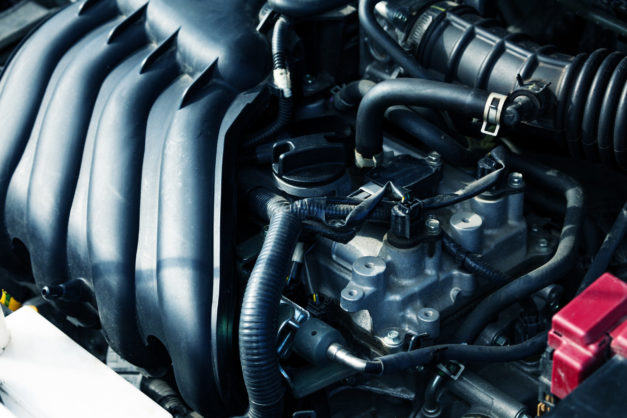
The exhaust is a complex system that runs nearly the entire length of your vehicle. If one part of the exhaust system breaks or malfunctions, it compromises the entire system and can cause serious damage to your car. At Lou’s Custom Exhaust, exhaust is all that we do, and our exhaust professionals are ready to repair anything that might go wrong with your exhaust system. Your exhaust’s first line of defense is its manifold. Cracked manifolds affect your car’s ability to regulate the air-to-fuel ratio and control its emissions. Here’s what you need to know about how the manifold works within the exhaust system and what happens if it’s cracked. (Check out our earlier post on how to spot cracked manifolds.)
It’s all connected
The manifold is connected directly to the engine and collects the engine’s emissions. It takes in the fuel/air mixture from all the engine’s cylinders, whether your car has a four-, six-, or eight-cylinder engine. Manifolds take in all the burnt engine gases and then burn off any other gases that are unused or did not burn completely before it reached the manifold. The manifold must be at an extremely high temperature to burn off those gases. This is why manifolds can easily crack. The metal expands and contracts with the temperature fluctuations, weakening the manifold and causing it to crack. If you live in a place that has particularly cold winters—as we do in NH—cracked manifolds are something you need to look out for.
Damage control
As you might expect, if the manifold is damaged, it messes with the whole exhaust system. Emissions levels are carefully monitored, and your car will not pass inspection if its emissions levels are too high. Cracks in the manifold allow gases to escape before the manifold can burn them off or send them back through the exhaust system to the catalytic converter. This houses the oxygen sensors. If gases are escaping through cracks in the manifold, the oxygen sensors will get an inaccurate reading and will not measure your car’s air to fuel ratio correctly. This can cause your engine to use more fuel than it needs and lead to poor gas mileage.
It gets hot
As we mentioned above, the exhaust gases that the manifold burns off are hot. By the time they come out the exhaust pipe, exhaust gases are 400-500 degrees F. That’s after they’ve had a little time to cool off. If the exhaust gases escape from cracked manifolds, they can cause damage to other parts of the engine. They can melt wires or even ignite the other combustible materials in the engine. If you think your manifold is cracked, get it looked at by an exhaust professional right away.
We fix cracked manifolds
The professionals at Lou’s Custom Exhaust are ready to handle cracked manifolds and all your other exhaust problems. Contact us at 603-249-5981 to schedule an appointment.

